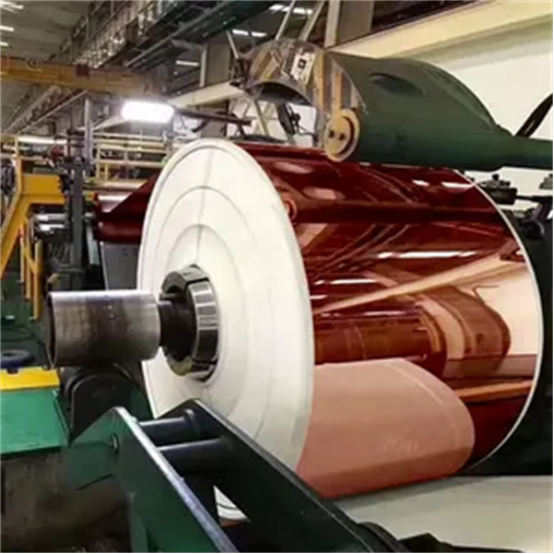In the field of copper coil manufacturing, Jindalai Steel Group is a leading copper coil manufacturer, offering a wide range of products, including T2 copper coils, T3 copper coils, TU1 oxygen-free copper coils, OFC single-crystal copper coils, C1100 red copper coils, and TP2 phosphorus-deoxidized copper coils. Each type of copper coil is suitable for specific applications and has unique properties to meet diverse industrial needs.
One of the most frequently asked questions in the copper coil industry is the core difference between T2 and TU1 copper coils. T2 copper coils are renowned for their excellent conductivity and are often used in applications with high performance requirements. In contrast, the manufacturing process of TU1 oxygen-free copper coils results in extremely low oxygen content, thereby improving conductivity and making them ideal for high-end applications such as power batteries and electronic devices. Ultimately, the choice between T2 and TU1 coils depends on the specific application requirements, including conductivity, thermal performance, and oxidation resistance.
Another common question concerns the “0.05mm” marking on copper coils. This marking typically refers to the coil’s thickness, not its width. Understanding the dimensions of copper coils is crucial for manufacturers and engineers, as thickness significantly impacts the coil’s performance in various applications.
For power batteries, the copper coils used do indeed have special performance requirements. These coils must have high conductivity to ensure efficient energy transfer, while also possessing excellent heat dissipation to prevent overheating. Furthermore, the coils should have corrosion resistance and oxidation resistance to maintain their performance over a long period. In these applications, TU1 oxygen-free copper coils or OFC single-crystal copper coils are often the preferred choice due to their superior conductivity and durability.
The conductivity of copper coils is affected by a variety of factors, including the purity of the copper used, the manufacturing process, and the presence of alloying elements. For example, C1100 red copper coils, known for their high purity, have excellent conductivity, while TP2 phosphorus deoxidized copper coils offer higher strength and oxidation resistance. The choice of copper coil type significantly impacts the overall performance of the final product.
When slitting copper coils, several factors must be considered to ensure optimal results. First and foremost, the precision of the slitting process is crucial; any error can lead to material waste and performance degradation. Furthermore, the type of cutting tools used, the slitting speed, and the handling of the slit coils all affect the quality of the final product. Therefore, partnering with a reputable copper coil manufacturer like Jindalai Steel Group is essential, as they possess the expertise and advanced equipment to provide high-quality copper coils tailored to your specific needs.
In short, for industries that rely on copper coils, understanding the various types of copper coils and their applications is crucial. Jindalai Steel Group is committed to providing high-quality copper coils, including T2, TU1, and other special specifications, to meet the diverse needs of our customers. Whether you require copper coils for power batteries or other applications, our professional technology and unwavering pursuit of quality ensure you receive the highest quality products on the market.
Post time: Nov-24-2025









